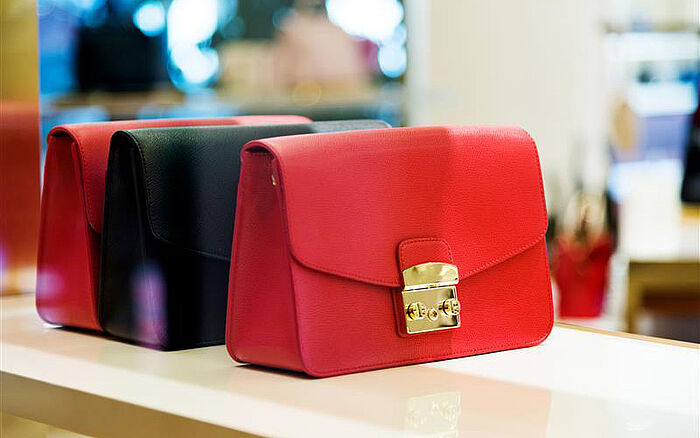
Trademark exhaustion and resale markets
From fashion and footwear to phones and furniture, more and more consumers are embracing aftermarket shopping. This growing trend is not just fueled by a love for vintage styles; it is also driven by a desire for sustainability and smart spending.
The popularity of second-hand goods is evident in the success of platforms such as Vinted, Vinterior, Thrift+ and Back Market. Other websites are also adapting to compete with them: In October this year, for example, eBay scrapped seller fees for private users in almost all product categories.
Despite, and perhaps because of, their attractiveness to price-sensitive consumers, resale markets present several challenges for brand owners. Most notable among these are the potential loss of new product sales, infiltration of counterfeit or unauthorized items and harm to brand reputation due to faulty, damaged or substandard goods and poor service.
Present complications
However, IP protections offer limited ways to address these issues. Once goods are sold, the owner's rights are generally exhausted, meaning that, outside exceptional circumstances, they cannot prevent subsequent transactions.
Limited, yes, but not non-existent. In some recent cases, courts have seemingly recognized the damage caused by resale markets and the remedies available under trademark law. For example, in February 2024, a jury in the United States found in favor of Chanel in a counterfeiting, trademark infringement, false advertising and unfair competition case against the reseller What Goes Around Comes Around (WGACA).
Chanel had accused WGACA of selling counterfeit and other unauthorized (such as display-only) bags. WGACA denied this, but the jury unanimously backed Chanel on all counts and awarded the luxury company statutory damages of $4 million USD, with additional damages expected.
The European context
At the Court of Justice of the European Union (CJEU), there have been several judgments concerning the resale of branded goods, though their examination must be prefaced with an acknowledgment that these cases often turn on facts that are specific to the industry or product involved.

The high price of luxury items creates a bustling resale scene, yet this also allows less obvious imitations to slip into the market. Consumers who believe they are buying second-hand, though legitimate, goods may overlook signs that might otherwise make them suspicious.
In one instance, the CJEU found that the de-branding and re-branding of Mitsubishi forklift trucks otherwise unavailable in the concerned markets constituted "use in the course of trade" of a trademark. Belgian company Duma, which sells new and second-hand forklift trucks, had imported and modified the vehicles.
In its ruling in Case C-129/17 Mitsubishi Shoji Kaisha Ltd and Mitsubishi Caterpillar Forklift Europe BV vs Duma Forklifts NV and G.S. International BVBA, the Court said that "the proprietor of a mark is entitled to oppose a third party, without its consent, removing all the signs identical to that mark and affixing other signs on products placed in the customs warehouse […] with a view to importing them or trading them in the European Economic Area (EEA) where they have never yet been marketed."
The Court essentially found that any act by a third party preventing the proprietor of a trademark from controlling the first placement of goods bearing that mark on the market in the EEA undermines the essential function of a trademark to indicate origin. It added that de-branding can also affect the investment and advertising functions when the product is not marketed by the trademark proprietor or with its consent.
A more recent case concerned the resale of HP-branded IT equipment by Senetic in Poland. The defendant believed it could market the equipment lawfully as the trademark rights were exhausted, but it needed information in the form of serial numbers from HP to confirm this, which HP was not willing to provide.
In its judgment in Case C-367/21, Hewlett Packard Development Company LP vs Senetic S.A., the Court ruled that the EU Trade Mark Regulation precludes "the burden of proof of exhaustion of the rights conferred by an EU trade mark being borne exclusively by the defendant to the action for infringement" where the goods have been distributed through a selective network with an assurance that they can be marketed legally "and the proprietor of that trade mark refuses to carry out that verification at the purchaser's request."

De-branding is less of a problem for businesses than counterfeiting as a favorable brand perception is able to increase product value. However, when it does occur, this effacement can lead to a company competing with its own goods.
This ruling shifts the burden of proof initially to the trademark owner in cases where it has the relevant supply-chain information that would show whether or not trademark rights are exhausted.
The AGA cooker case
In the UK, a recent judgment by Deputy High Court Judge Nicholas Caddick KC addressed a situation where a reseller, UK Innovations Group Limited, marketed and sold modified AGA range cookers. The defendant had developed a control system that could be fitted to AGA cookers to convert them to run on electricity.
AGA alleged that this infringed six of its trademarks, including word, 2D and 3D marks. The defendant argued it had a defense under s.12 of the Trade Marks Act 1994, which states that infringement of a registered trademark does not occur by the use of that mark in relation to goods that the proprietor has consented to put on the market in the UK or the EEA.
In his judgment, Nicholas Caddick KC found that the defendant's offer of an opportunity to "Buy an eControl AGA" created the impression that there was a commercial connection between the retrofitted products and AGA. He said the statements on the defendant's website "taken as a whole were likely to give customers the impression that what they were being offered was an AGA product (an eControl AGA, one of a range of AGA products) and this was something about which the Claimant could legitimately object."
He said the reference to the "eControl AGA" was likely to be seen not as purely descriptive but rather as an official product line and an inherent part of the AGA brand. Moreover, the defendant's references to its eControl System "were likely to be taken as references to a system that was connected with the Claimant."

The Aga range cooker was invented by Nobel Prize-winning physicist Gustaf Dalén in 1922. Blinded by a research explosion, the Swedish scientist set his mind to creating a cleaner, more convenient and economical cooker to help his wife.
Upholding that this was a problematic issue, the judge was careful to draw a distinction between objections to the sale of refurbished goods and complaints against the way in which they were sold.
"[Whilst] I do not think that the Claimant had legitimate reasons to object to the Defendants selling AGA Cookers which they had refurbished and fitted with the eControl System, I find that it did have legitimate reasons to object to the way in which the Defendants went about marketing and selling these cookers. In my judgment, in this context, the interests of the Claimant as a trade mark proprietor outweigh the interests of people (such as the Defendants) dealing with the cookers in the aftermarket."
He also found that the defendant's actions were detrimental to and took unfair advantage of the AGA marks' distinctive character without due cause as under s.10(3) of the Trade Marks Act.
A range of options
These cases show that in certain circumstances, trademark owners may be able to take action in the resale market. Wherever they do occur, such arguments are likely to be finely balanced and will depend on the nature of the product, the industry concerned and all public-facing communications.
In general, to be successful in enforcing their rights, trademark owners will often need to show that there is some behavior by a reseller that is misleading of the consumer or damaging to the brand and/or that counterfeit or other unauthorized goods have been sold.
Rights owners with concerns about resale markets should consider using all available tools – including copyright and design protection, competition law and digital platforms' takedown mechanisms – in addition to trademark law to obtain an effective result.
A version of this article was originally published in CITMA Review magazine, November - December 2024 issue.
Filed in

Developments in branding and new regulations are placing a multitude of demands on in-house lawyers.

Refreshing a corporate image is a high-stakes game; playing it right requires careful consideration of trademarks and other IP rights.



